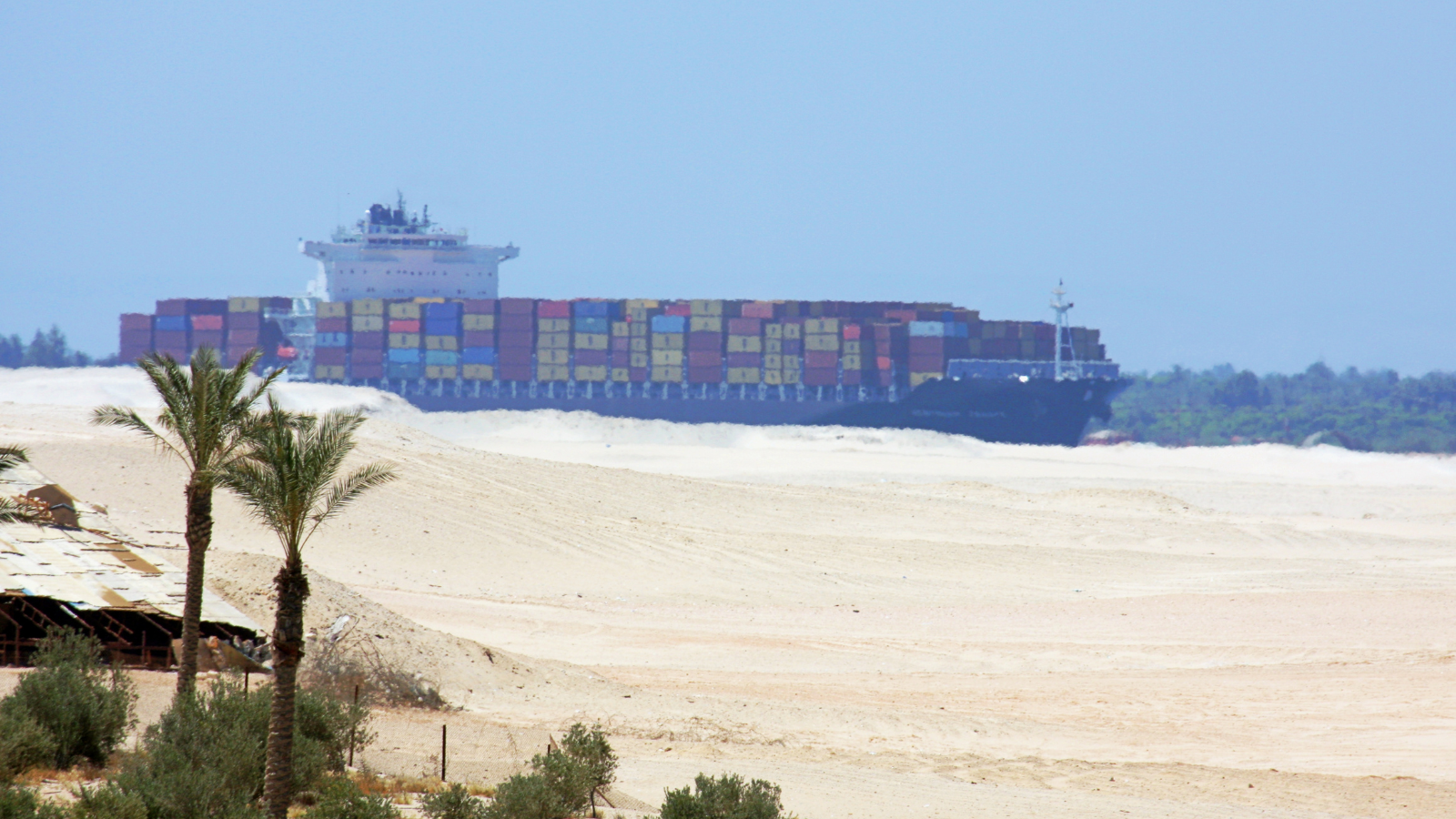Ever Given’s salvage team attempt for higher payout for work blocked by ship owner
Good morning! As we start a new month in early March, we continue to see the impact of the ongoing global supply chain challenges that have been dominating the headlines in recent months. From disruptions in the transportation sector to shortages in key components, the pandemic continues to impact supply chains worldwide. In today's edition, we will be exploring some of the latest developments in the industry, including new trends, challenges, and best practices. So grab a cup of coffee, sit back, and let's dive into this week's supply chain news. ☕️
————
SMIT Salvage BV, a Denmark-based salvage team, rushed to the Suez Canal in 2021 to help dislodge the infamous Ever Given ship. Now, they’re claiming that the owners of the ship are barring their company from claiming a higher reward for their assistance. Higaki Sangyo Kaisha Ltd., the owner, is responding to SMIT’s accusations. They say the two companies had an agreed upon contract, and now SMIT’s claim to more money is “opportunistic”.
Check out today’s featured article from Supply Chain Brain to read about situation between the Dutch salvage firm and the Japanese ship owners of the Ever Given. Will the salvage team be able to claim more, even after rescue term agreements were made prior?
Featured Article:
Crew That Unstuck the Ever Given Says It’s Owed More Money | Supply Chain Brain
“The Dutch salvage firm that helped prevent a global freight bottleneck when it dislodged a massive container ship stuck in the Suez Canal is fighting the vessel’s owners in a London court, claiming they were denied a proper payout.”
Railroad & Safety Issues 🚂
Railroad heat sensors may be unreliable, post-Ohio train wreck
After the fiery train wreck that derailed and spilled hazardous waste into East Palestine, Ohio, many are pointing at unreliable heat sensors. Government reports, academics and decades of research have shown that this is a common problem. Railroad heat sensors, also known as hotbox detectors, are used to detect overheated bearings on trains. These sensors work by measuring the temperature of the bearings as they pass over the detector. However, there are a few reasons why these sensors can be unreliable.
Heat sensors are exposed to harsh outdoor environments, including extreme temperatures, rain, snow, and dust. These environmental factors can affect the accuracy of the readings and cause false alarms. They also require regular maintenance to ensure that they are functioning correctly. If the sensors are not properly calibrated or maintained, they can provide inaccurate readings. The speed of the train can also affect the accuracy of the readings. If the train is traveling too fast, the sensor may not have enough time to accurately measure the temperature of the bearings. Different types of bearings may produce different heat signatures, making it more challenging to accurately detect overheating. Additionally, the placement of the sensor is critical to its accuracy. If the sensor is not installed correctly, it may not be able to detect overheated bearings.
Deliveries & Network Association 🚚
UPS & Amazon’s relationship is getting complicated
Amazon has been a top customer of UPS, but 2023 will bring change on the horizon. Both companies have mutually agreed to cut back on its relationship as Amazon builds its own logistics empire and UPS works to grow segments of business outside of e-commerce.
UPS (United Parcel Service) and Amazon have a complex relationship. On one hand, UPS is one of the main delivery partners for Amazon, helping to deliver a significant portion of the e-commerce giant's packages to customers around the world. On the other hand, Amazon is increasingly building up its own delivery infrastructure, including its own fleet of planes, trucks, and delivery drivers, which has the potential to compete with UPS and other traditional delivery companies. In recent years, there have been reports of tension between Amazon and UPS over pricing and other issues, with Amazon reportedly seeking to negotiate lower rates from UPS and other delivery companies.
iLevel With You 🏡
More topics for the average American household to consider…
🚚 Customers and shippers of UPS are urged to switch to FedEx to avoid potential summer delays. FedEx penned a company message to customers and shippers, warning them that there is a potential UPS employee strike underway. The company advised that customers should make the switch now, and that FedEx is committing to fulfilling and prioritizing its duties to current and actively shipping customers. No one carrier has the capacity to absorb package volume from UPS in lieu of a strike, says FedEx. UPS and the Teamsters union have ongoing labor negotiations, and their current contract is set to expire July 31st. Teamsters has advised they will strike if a deal isn’t reached by that point.
Get Smart 🧠
Ramp up that brain power for these advanced topics…
👍 Change is inevitable, at anytime. Prepare accordingly. Moving from reactive to proactive decision-making requires a shift in the mindset of the supply chain company and the adoption of new technologies and processes that enable the company to identify and address issues before they occur. By adopting these steps, a supply chain company can shift from a reactive to proactive decision-making approach, enabling it to identify and address potential issues before they occur. This approach can help improve efficiency, reduce costs, and improve customer satisfaction.


































The Workday Dash is an aggregation of articles regarding the transportation logistics, trucking, and supply chain industries for November 28, 2024, from iLevel Logistics Inc.